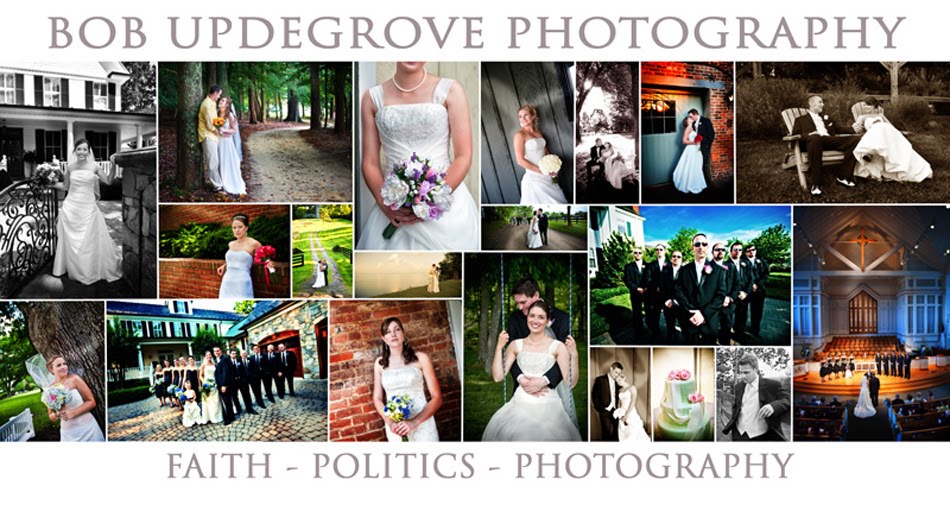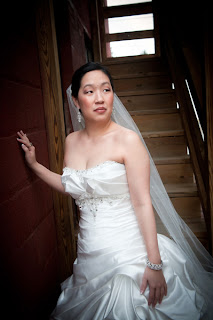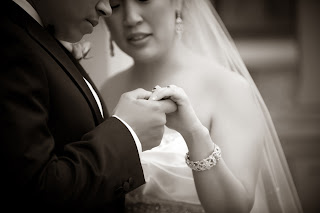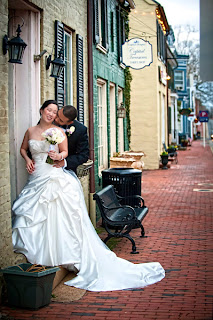Let's face it, fill up a room with celebrities . . artists, actors, musicians, hollywood moguls, journalists . . and you basically have the Democratic National Convention. Celebrities liked Clinton. They love Obama, and that love seems to be unconditional. Obama could threaten to take away more of their money (oh wait, he has already said that is what he wants to do), he could pull the U.S. into a third war in a Muslim country (oh wait, he has), he could keep Guantanamo Bay open (oh wait, he has), he could basically do nothing in terms of improving the economy (oh wait, you get the idea); it doesn't matter, celebrities vocally express their unconditional love for the man. And they love to bash conservatives, through their movies, their music, and their words. For conservatives, it gets old . . and predictable. It is probably why alternative media outlets (blogs, radio programs, even Fox News) have become so popular. Conservatives grow tired of celebrities with an agenda, particularly when that agenda is liberal.
So here comes Donald Trump. The Donald has been around for quite awhile. It's not like he is new. In his early years, Trump made the news with his wealth, his buildings, and his marriages. These days Trump is pretty much seen by the public more as a celebrity than as a businessman. He rubs shoulders with other celebrities through his television show and his work. And Trump is not afraid to bash people. So when Trump comes out lambasting Obama, asking questions publicly that many conservatives have wondered privately, conservatives love it. How often do you hear a celebrity bash Obama? That, in my opinion, is Trump's appeal. Finally, a celebrity with fairly considerable respect, is taking it to Obama and liberals.
Trump might not be a conservative. In fact he spent a lot of time bashing George Bush while Bush was president. And Trump has changed his views on many issues. He is unpredictable. You never really know what will come out of his mouth. While that can be refreshing coming from a politician, for now Trump is not a politician, so if he ever got elected into any office, that trait would most likely be restrained. And there are other restraints as well. Right now, Trump can use his wealth to his advantage. As a president he cannot just go out and buy people out with his own money. It would be our money at his disposal. Would he spend it lavishly as he does now with his own money, or would he be frugal? Right now, Trump can make decisions without consulting a board of directors. How would he "manage" Congress? I wonder if this is a question that only a seasoned politician can really answer.
I like the idea of a president Trump type of a person. After the past two years, it would be refreshing to have someone in that office who believes in the free market and is truly a capitalist. It would be refreshing to have someone who has actually led something prior to becoming president. I have to wonder though if someone completely outside the political structure can effectively function within that structure, especially since they come into it with no political experience. Do we really want a presidential Apprentice? Isn't that what we got with Obama? Someone like Trump should probably run for governor first. Test the political waters to see if they can function in that world. It is completely different than the corporate world. Sure, leadership is leadership; but just because you are captain of your football team doesn't necessarily mean you can lead a 100,000 employee company.
Tuesday, April 26, 2011
Saturday, April 16, 2011
Why Does Anyone Believe Anything Obama Says?
Our president has demonstrated over and over again that he is more than willing to say one thing but then do the exact opposite. Many, if not most, of the promises he made on the campaign trail have not been followed. In fact he has purposely and quite eagerly gone against his own words. Now, you might be thinking that is true with most politicians; and I would agree. But wasn't Obama supposed to be different? Wasn't his whole appeal of "hope and change" built on the "hope" that he was a different kind of politician; that in fact he transcended politics, and that would be a "change"?
Hopefully you have heard the sound bites from a few years ago when then Senator Obama spoke of raising the debt ceiling as being a failure of leadership (namely George Bush). Now, as president, Obama believes anyone who votes against raising the debt ceiling is just evil.
Today, another example of how dishonest Obama really is came to light. You have to read this (click below) and see the video clip from his campaign. When you are done, please ask yourself: why would I ever believe anything Obama says?
Click here to for more.
Hopefully you have heard the sound bites from a few years ago when then Senator Obama spoke of raising the debt ceiling as being a failure of leadership (namely George Bush). Now, as president, Obama believes anyone who votes against raising the debt ceiling is just evil.
Today, another example of how dishonest Obama really is came to light. You have to read this (click below) and see the video clip from his campaign. When you are done, please ask yourself: why would I ever believe anything Obama says?
Click here to for more.
Saturday, April 9, 2011
Tuesday, April 5, 2011
Friday, March 11, 2011
Friday, March 4, 2011
Tuesday, February 15, 2011
Arcade Fire with David Bowie
I've been loosely following Arcade Fire for the past 3 years. I really enjoy bands that not only have a lot of energy, but ones where band members switch off on instruments from song to song. Mumford and Sons (the highlight of the Grammys in my mind) is another band like that. Anyhow, here is a clip of Arcade Fire with David Bowie. Turn up the volume and enjoy.
Thursday, January 27, 2011
Ann Coulter Gets It Right
Think what you will about Ann Coulter, usually in any of her writings she eventually hits the issue right on the nail. In this week's article Coulter writes:
Obama said, "We are the nation that put cars in driveways and computers in offices; the nation of Edison and the Wright brothers; of Google and Facebook."
And then the government outlawed Edison's great invention, made the Wright brothers' air travel insufferable, filed anti-trust charges against Microsoft and made cars too expensive to drive by prohibiting oil exploration, and right now -- at this very minute -- is desperately trying to regulate the Internet.
She later finished her piece with this gem:
Actually, I was glad to hear him say that "there isn't a person here" -- which presumably included Democrats -- who would live anyplace else.
Then why are they always trying to turn us into Western Europe?
Wednesday, January 26, 2011
Naples Florida
A few images from Naples Florida. One taken with iPhone (with Hipstomatic), and the others of the pier with the D700. Click on the image to enlarge.
Friday, January 14, 2011
Photography 101, Session 08
People all the time ask me for camera recommendations. It is usually a tough question to answer because there are so many variables involved: how you plan on using your camera, where you plan on using it, expectations on handling and results, how much you want to do with your photos after the capture. In this session I will try to cover some of these key points you should consider before deciding on a camera.
There are basically two types of cameras: point and shoot, and d-slr. Point and shoot cameras are noticeably smaller, usually fitting inside your pocket. And typically they are one piece, possibly with a lens that opens and protrudes out. Point and shoot cameras are designed to be simple. Their electronics can be sophisticated, and they are capable of taking very nice images; but they are not particularly versatile, and they are slow. Take a picture, count to ten, then take another picture. D-slr cameras, on the other hand, are designed for expansion and speed. Want to throw on a larger lens? No problem. Want to use an external flash or two? Go ahead. Want to take 10 photos in 10 seconds? Go ahead and take 20. But with these options comes size and bulk. So the question arises: what do you plan to do with your camera?
If you plan to use your camera mostly for travel, photographing sites, and you don't want to carry a load around with you . . get a point and shoot (or iphone 4). If you don't mind the extra weight, and you want more control and options for this once in a lifetime trip, then go with a d-slr. If you plan on photographing kids sports, particularly from the stands, then you will probably need something that can shoot longer and quicker, i.e., a d-slr. If you plan on photographing your family on the beach and just want some casual candids, then perhaps a point and shoot would be adequate.
So, are images coming from a point and shoot any different than images coming from a d-slr? Yes and no. Generally speaking, the sensor chips on point and shoot cameras are smaller than ones used on d-slr cameras. Smaller chips typically translates into more noise, but that can be greatly corrected by getting proper exposures during the capture. Also with point and shoot cameras, you don't have much control over depth of field. If you want to blur out the background for a portrait, there is nothing like using a long lens to narrow that depth of field. So taking the same photo with the two different styles of cameras will give you two different looks. When you look at an image on your camera's screen, it can look great; but put that image on your computer and zoom in and you realize that it is out of focus, or the colors are not quite right, or there is a lot of digital noise in the image. Zooming in on a computer screen is where I can see the biggest differences between many point and shoot images and their d-slr counterparts. The d-slr ones just seem to hold up better. But for many people, they never look at their images close up. Their tolerance level is pretty high. They don't mind if it is slightly out of focus or if there is some noise in the image. So picture quality is not always the biggest concern for many people.
For those who like to play with their images after the capture, having the best quality to work with is very important. It is hard to rescue an image that is in bad shape to begin with. Your best bet for starting out with optimum quality is to use high res images captured with a d-slr. Even better is to start with a raw image, as discussed in Photography 101, session 07. Generally speaking, raw images are only possible in d-slr cameras (there are exceptions to this).
So what do I recommend? For point and shoot, you have two options: the very basic vs. ones that have a d-slr look and feel, but still basically function like a point and shoot. As of January 2011, for the basic, I have heard some great things about he Canon s95. If you want a point and shoot with more options, look at the Canon g12. I have the Canon g9 and it does very well (and it shoots raw images). For d-slr, I would say get the most you can afford. The Canon Rebel line have gotten great revues, and the Nikon D7000 likewise has been well received. I use the Nikon D700 and have been very happy with it. Within the major lines (like Canon and Nikon), they have consumer level cameras and then their pro line. As expected, the consumer line will produce better quality images than point and shoot cameras, but not necessarily as good as the pro line. Again, this is largely due to the kind of sensor chip used. Oftentimes though, what separates the consumer line from the pro line, beyond a few more bells and whistles, is the material used in construction of the body. The pro line is built to hold up longer and under more strenuous conditions.
Of course with d-slr cameras, it is not just the camera body. You have lenses and flash units to purchase as well, and particularly with lenses, they can be expensive. I will say that glass is important, so you want to buy the best lens that you can afford.
Bottom line: you need to decide what you will use your camera for before deciding on which camera to buy. I bought the Canon g9 several years ago so I would have something that I could carry with me on trips or take down to the beach without worrying about carrying it around or being exposed to the elements. For that purpose it works very well. There are times when I have both cameras (using the g9's great video mode while shooting stills with my Nikon D700). I'll shoot some stills with the g9 just to compare them with the D700. There is no comparison. Of course you are comparing a $500 camera with a $2700 camera with a $1500 lens on it, so sure, there better be a difference. But I don't want to always carry around the big stuff, so having the g9 fills the bill well in those situations. I would never photograph a wedding with it though.
There are basically two types of cameras: point and shoot, and d-slr. Point and shoot cameras are noticeably smaller, usually fitting inside your pocket. And typically they are one piece, possibly with a lens that opens and protrudes out. Point and shoot cameras are designed to be simple. Their electronics can be sophisticated, and they are capable of taking very nice images; but they are not particularly versatile, and they are slow. Take a picture, count to ten, then take another picture. D-slr cameras, on the other hand, are designed for expansion and speed. Want to throw on a larger lens? No problem. Want to use an external flash or two? Go ahead. Want to take 10 photos in 10 seconds? Go ahead and take 20. But with these options comes size and bulk. So the question arises: what do you plan to do with your camera?
If you plan to use your camera mostly for travel, photographing sites, and you don't want to carry a load around with you . . get a point and shoot (or iphone 4). If you don't mind the extra weight, and you want more control and options for this once in a lifetime trip, then go with a d-slr. If you plan on photographing kids sports, particularly from the stands, then you will probably need something that can shoot longer and quicker, i.e., a d-slr. If you plan on photographing your family on the beach and just want some casual candids, then perhaps a point and shoot would be adequate.
So, are images coming from a point and shoot any different than images coming from a d-slr? Yes and no. Generally speaking, the sensor chips on point and shoot cameras are smaller than ones used on d-slr cameras. Smaller chips typically translates into more noise, but that can be greatly corrected by getting proper exposures during the capture. Also with point and shoot cameras, you don't have much control over depth of field. If you want to blur out the background for a portrait, there is nothing like using a long lens to narrow that depth of field. So taking the same photo with the two different styles of cameras will give you two different looks. When you look at an image on your camera's screen, it can look great; but put that image on your computer and zoom in and you realize that it is out of focus, or the colors are not quite right, or there is a lot of digital noise in the image. Zooming in on a computer screen is where I can see the biggest differences between many point and shoot images and their d-slr counterparts. The d-slr ones just seem to hold up better. But for many people, they never look at their images close up. Their tolerance level is pretty high. They don't mind if it is slightly out of focus or if there is some noise in the image. So picture quality is not always the biggest concern for many people.
For those who like to play with their images after the capture, having the best quality to work with is very important. It is hard to rescue an image that is in bad shape to begin with. Your best bet for starting out with optimum quality is to use high res images captured with a d-slr. Even better is to start with a raw image, as discussed in Photography 101, session 07. Generally speaking, raw images are only possible in d-slr cameras (there are exceptions to this).
So what do I recommend? For point and shoot, you have two options: the very basic vs. ones that have a d-slr look and feel, but still basically function like a point and shoot. As of January 2011, for the basic, I have heard some great things about he Canon s95. If you want a point and shoot with more options, look at the Canon g12. I have the Canon g9 and it does very well (and it shoots raw images). For d-slr, I would say get the most you can afford. The Canon Rebel line have gotten great revues, and the Nikon D7000 likewise has been well received. I use the Nikon D700 and have been very happy with it. Within the major lines (like Canon and Nikon), they have consumer level cameras and then their pro line. As expected, the consumer line will produce better quality images than point and shoot cameras, but not necessarily as good as the pro line. Again, this is largely due to the kind of sensor chip used. Oftentimes though, what separates the consumer line from the pro line, beyond a few more bells and whistles, is the material used in construction of the body. The pro line is built to hold up longer and under more strenuous conditions.
Of course with d-slr cameras, it is not just the camera body. You have lenses and flash units to purchase as well, and particularly with lenses, they can be expensive. I will say that glass is important, so you want to buy the best lens that you can afford.
Bottom line: you need to decide what you will use your camera for before deciding on which camera to buy. I bought the Canon g9 several years ago so I would have something that I could carry with me on trips or take down to the beach without worrying about carrying it around or being exposed to the elements. For that purpose it works very well. There are times when I have both cameras (using the g9's great video mode while shooting stills with my Nikon D700). I'll shoot some stills with the g9 just to compare them with the D700. There is no comparison. Of course you are comparing a $500 camera with a $2700 camera with a $1500 lens on it, so sure, there better be a difference. But I don't want to always carry around the big stuff, so having the g9 fills the bill well in those situations. I would never photograph a wedding with it though.
Subscribe to:
Posts (Atom)
























